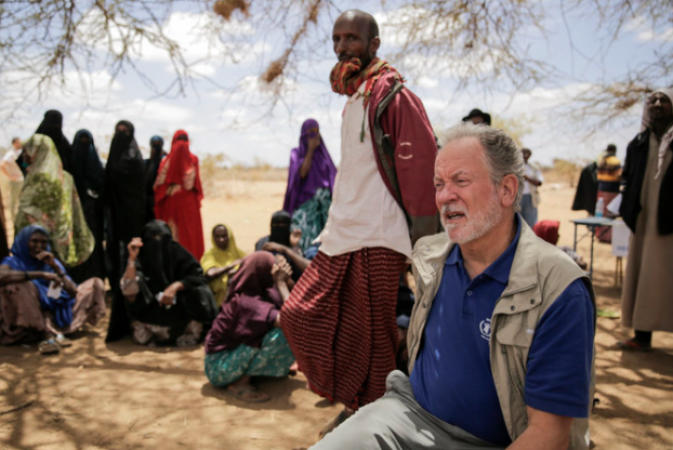
UNO: In the next 12 to 18 months, the world will experience mass migration, unstable nations, and starving children and adults, the head of the UN World Food Program warned on Friday. Without additional billions of dollars to feed millions of hungry people, this will be the case.
Last year, David Beasley praised increased funding from the US and Germany and urged China, the Gulf countries, billionaires, and other nations to "step up big time."
The former governor of South Carolina said in an interview that he is "extremely worried" that the World Food Program (WFP) won't be able to raise the $23 billion it needs this year to assist an estimated 350 million people in 49 countries who are in dire need of food. He will hand over control of the organization to US ambassador Cindy McCain next week.
Also Read: Muslims and Christians in Burkina Faso support cooperation amid insurgency
Quite frankly, he said, "At this point, I'll be surprised if we get 40% of it. He noted that the WFP faced a comparable crisis last year, but fortunately was able to persuade the US to increase funding from roughly $3.5 billion to $7.4 billion and Germany to increase its contribution from $350 million a few years ago to $1.7 billion. However, he does not believe they will do so this year.
He argued that other nations must now step up, beginning with China, the second-largest economy in the world, which gave the World Food Program only $11 million in 2017.
Beasley praised China for its success in significantly reducing domestic hunger and poverty, but noted that it contributed less than one cent per person in comparison to the United States, the world's largest economy, which contributed about $22 per person last year.
He stated that China must "engage in the multilateral world" and be prepared to offer crucial assistance. "They owe it to themselves morally to do so."
Beasley claimed that they had done "an incredible job of feeding their people" and that "now we need their help in other parts of the world" in order to learn from their success, particularly in less developed nations like Africa.
Also Read: Republicans criticize the criminal justice system while defending Trump
With rising oil prices, Gulf countries can also contribute more, particularly Muslim nations that have ties to nations in east Africa, the Sahara, and other parts of the Middle East, he said, hoping they will do so.
Even though charity isn't a long-term solution to the food crisis, Beasley claimed that the richest billionaires made unheard-of profits during the COVID-19 pandemic and that "it's not too much to ask some of the multibillionaires to step up and help us in the short-term crisis."
He stated that in the long run, he would really like to see billionaires use their experience and success to support "the world's greatest need, and that is food on the planet to feed 8 billion people."
"The world must realise that the next 12 to 18 months are crucial, and if we stop providing funding, there will be mass migration, nation-wide instability, and child malnutrition on top of that.
Beasley claimed that WFP recently had to reduce rations for 4 million Afghans by 50%, and that "these are people who are knocking on famine's door now."
"We don't have enough money right now," he said, "just to reach the most vulnerable people." Therefore, if we don't act quickly, we could literally have hell on Earth. We are currently at the cliff stage.
Beasley claimed that he has been warning Western and European leaders that, despite their attention being primarily focused on Ukraine and Russia, they "better well not forget about what's south and southeast of you because I can assure you it is coming your way if you don't pay attention and get on top of it."
Also Read: First trip to Egypt by the Syrian foreign minister in over a decade
There is no excuse for any child to die of starvation, he claimed, given the $400 trillion in wealth that exists on the planet.
According to the WFP executive director, decision-makers must give priority to the humanitarian needs that will have the biggest impact on global societal stability.
The Sahel region of Africa, as well as the east, which includes Somalia, northern Kenya, South Sudan, and Ethiopia, were singled out as priority areas. He also mentioned Syria, which is having an effect on Jordan and Lebanon, as well as Central and South America, where the number of people migrating to the United States is now five times what it was a year and a half ago.